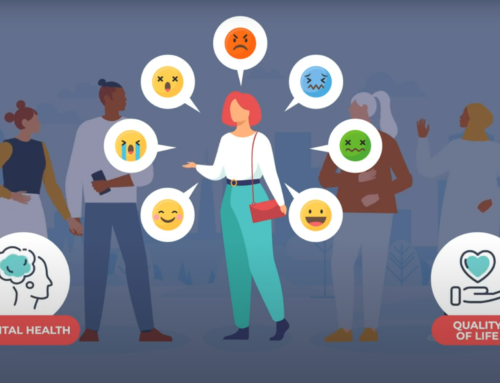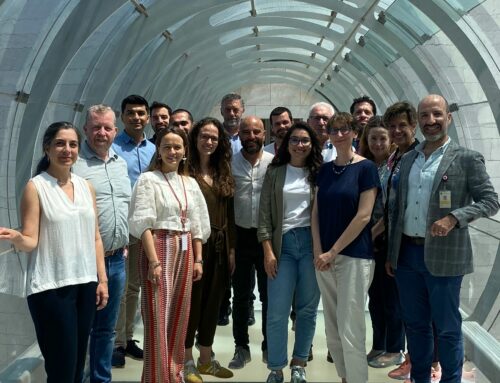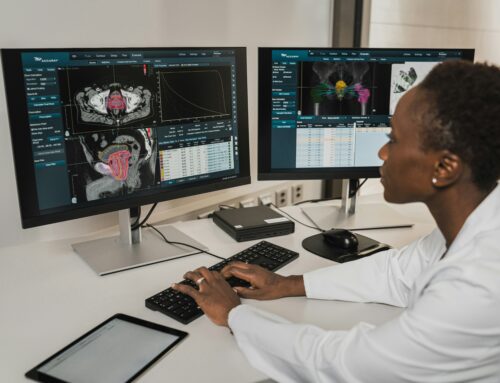The Third Industrial Revolution, or Digital Revolution, has radically changed the rules of the game of human civilization since its beginning in the 20th century. Virtually every human activity has seen how technology and digitalisation can integrate into, improve, and even revolutionise already existing systems. The European Union has long since included digital transformation among its major strategies for development. One of its main priorities is the creation of common data platforms, based on unified architecture and established standards.
Thus, the launch of the OPEN DEI initiative, which is part of the Horizon 2020 programme and aims at supporting the creation of common platforms and experimental, demonstrative pilots; such pilots will bring Europe closer to the implementation of next generation digital platforms. The objective of OPEN DEI is crystal clear: “Opening eyes of European industry and society to the returns from Digital Transformation”. Specifically, OPEN DEI focuses on four basic industrial domains: Manufacturing, Agriculture, Energy, and Healthcare. Its healthcare domain framework groups together a large cluster of EU-funded research projects, including FAITH.
EU efforts to digitalise healthcare
Healthcare digitalisation in Europe, however, started long before OPEN DEI started; in fact, it dates back to the 90’s. Nonetheless, many challenges in digitalising the healthcare system are still the same today. From its fragmented beginnings, the large-scale implementation of Electronic Medical Records (EMRs) signaled the founding of European healthcare digitalisation. Together with the ongoing technology and healthcare needs evolution, OPEN DEI’s objectives changed over time as well. Currently, mHealth’s potentiality is among OPEN DEI’s priorities, since it is becoming increasingly widespread in healthcare and society in general.
Simply put, mHealth (or “mobile health”) allows rapid communication between patients, physicians, and healthcare providers. This is based on concepts already in use in instant messaging platforms. Hence, the idea of integrating mHealth with the existing Electronic Health Record (EHR) system was developed. Merging the two concepts to create stronger communication and coordination between healthcare’s various actors is one of many expected benefits of digitalisation.
Main challenges of digitalising healthcare
As simple as it might seem, healthcare digital transformation is not without challenges and bottlenecks. To begin with, some issues are intrinsic to the healthcare system itself. The system’s complexity, the doctor-patient relationship, and clinicians’ resistance to reconsider well-established practices are major challenges to overcome. Other issues are inherent to technology; data protection and security, or legal and ethical concerns on sensitive data are among these. Finally, fragmentation at the sector’s organisational level does not improve the situation either. The healthcare system’s different levels (e.g., primary vs long-term care) and how it works (e.g., insurance-based or not) increasingly complicate the new elements’ large-scale integration.
Nonetheless, OPEN DEI has identified pivotal strategic stages and healthcare digitalisation areas that can be supported by already deployed concepts – such as open digital platforms and reference architecture. These areas are cybersecurity and trusted big data solutions, open eco-systems that can more easily allow innovation, robotics & AI deployment and cross-cutting technology enablement (i.e., solutions based on wearables, IoT, etc.). In fact, all projects in the OPEN DEI Healthcare domain are dealing with one or more of the aforementioned areas. Researching new ways to integrate digital solutions within healthcare while solving the inherent issues of combining technology and healthcare services: this is a common trait of the projects in the Healthcare Cluster.
FAITH project inside the OPEN DEI Healthcare Cluster
The EU-funded FAITH project joined the OPEN DEI Healthcare Cluster in January 2020, promoting digitalisation from its very beginning. FAITH aims to design an AI-based supportive tool for a better and more effective doctor-patient communication; therefore, it fits perfectly inside the OPEN DEI Healthcare Cluster.
In FAITH’s case, the project aims to create an App for post-treatment cancer patients’ mental health monitoring. FAITH solution’s success crucially depends on the complementary skills and coordinated effort of its Consortium partners; it comprises healthcare providers, technology and big data experts, and SMEs with Ergonomics, UX Design and Human Factors expertise. Therefore, the FAITH research directly tackles today’s healthcare digitalisation challenges, such as data protection and better alignment and coordination between different healthcare levels. Also, FAITH contributes to relevant OPEN DEI development areas, like AI and cross-cutting technology development, and open digital platform creation.
Moreover, FAITH is part of all five Working Groups within the Cluster. The working groups focus on crucial topics, such as Dissemination, Architecture, Uses Cases, KPIs (Key Performance Indicators) and GDPR (General Data Protection Regulation). These are key areas crucial for the alignment of open platforms, reference architecture and large-scale pilots; fundamental building blocks not only of an extensive EU digital healthcare, but also of a more competitive EU industry.
Visit the OPEN DEI website to learn more about the Healthcare Cluster, or take a look at the Healthcare Cluster’s member projects.
Authors: Alessandro Tedeschi Gallo, Vera Ferraiuolo of Deep Blue (Rome, Italy).




